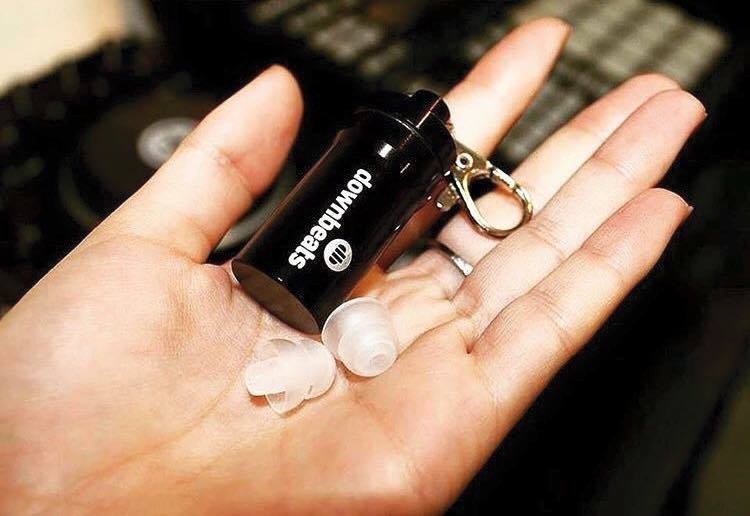Earplugs are a type of hearing protection device that is designed to reduce the intensity of sound waves entering the ear canal. T
hey are typically made from soft, flexible materials such as foam, silicone, or wax and can be worn in a variety of situations to protect the ears from harmful noise levels. While wearing earplugs may seem like a small and insignificant act, there are many compelling reasons why this simple measure is important for protecting your hearing and overall health.
The first and most obvious reason to wear earplugs is to protect your hearing. Our ears are sensitive organs that are designed to detect a wide range of sounds, from the softest whispers to the loudest roars. However, exposure to prolonged or excessive noise can damage the delicate hair cells in the inner ear, leading to permanent hearing loss.
This type of hearing loss is often gradual and can go unnoticed until it has progressed to a significant degree. In fact, according to the Centers for Disease Control and Prevention (CDC), approximately 22 million workers in the United States are exposed to hazardous noise levels on the job, and over 10 million Americans have already suffered from noise-induced hearing loss.
Wearing earplugs can help to prevent this type of hearing damage by reducing the intensity of sound waves that reach the ear. This is especially important in situations where the noise levels are very high, such as in a factory or construction site, at a music concert, or while operating heavy machinery. In these environments, the sound levels can easily exceed 85 decibels (dB), which is the threshold at which hearing damage can occur with prolonged exposure.
By wearing earplugs, you can reduce the intensity of sound to a safe level and protect your hearing from permanent damage. Another important reason to wear earplugs is to improve your sleep quality. Many people are sensitive to noise when they are trying to sleep, and even minor disturbances such as traffic noise, snoring, or the sound of a neighbor's television can disrupt their sleep and leave them feeling tired and groggy the next day.
By wearing earplugs, you can block out these sounds and create a quieter and more peaceful sleeping environment. This can lead to more restful and restorative sleep, which is essential for good health and well-being. Wearing earplugs can also be beneficial for people who suffer from tinnitus, a condition characterized by a ringing, buzzing, or other phantom sound in the ears.
Tinnitus can be caused by a variety of factors, including exposure to loud noise, head injuries, ear infections, and certain medications. While there is no cure for tinnitus, wearing earplugs can help to reduce the impact of external noise on the condition and make the symptoms more manageable.
In addition to these health benefits, wearing earplugs can also be a practical way to reduce stress and improve concentration in noisy environments. For example, if you work in an open office space or a busy coffee shop, wearing earplugs can help to reduce distractions and allow you to focus more easily on your work or studies. Similarly, if you are traveling on a plane or a train, wearing earplugs can help to block out the noise of the engine and make the journey more comfortable and relaxing.
Despite these benefits, many people are still hesitant to wear earplugs, either because they are uncomfortable, they interfere with their ability to hear, or they feel self-conscious about wearing them in public. However, there are many different types of earplugs available, including foam, silicone, wax, and custom-molded varieties, so it is possible to find a pair that is comfortable and effective for your specific needs.
Additionally, some earplugs are designed to reduce noise levels without completely blocking out sound, so you can still hear important alerts or conversations while protecting your ears. Such earplugs are called hi-fidelity earplugs, a type of earplug designed to reduce the volume of sound that enters the ear, while maintaining the clarity and fidelity of the sound. Hi-fidelity earplugs are typically made from materials that are specifically chosen to reduce the volume of sound without distorting it or muffling it. This allows the wearer to hear the full range of sound, but at a lower volume, which can help protect their hearing in loud environments.
Hi-fidelity earplugs are often used by musicians, concert-goers, and others who are regularly exposed to loud noises. They can also be used in other noisy environments, such as construction sites or factories, to reduce the risk of hearing damage. Some hi-fidelity earplugs are custom-made to fit the wearer's ear, while others are designed to fit a range of ear sizes.
DownBeats are such hi-fidelity earplugs, providing significant decibel reduction while actually enhancing the listening experience in the process. Calling DownBeats “earplugs” isn’t really the best description. That’s because DownBeats don’t stop sound in its tracks like a traditional foam earplug. Instead, DownBeats filter sound, ensuring that the highest quality sounds are reaching your ears while the harsh noises and feedback are left out with the crowd.
DownBeats take the sound, reduce it an overall 18 decibels, and channel it acoustically into your ears, making sure you have the optimal resonance in your ears at a sustainable level.
Try DownBeats earplugs for yourself – you won’t be disappointed. That’s a guarantee.

